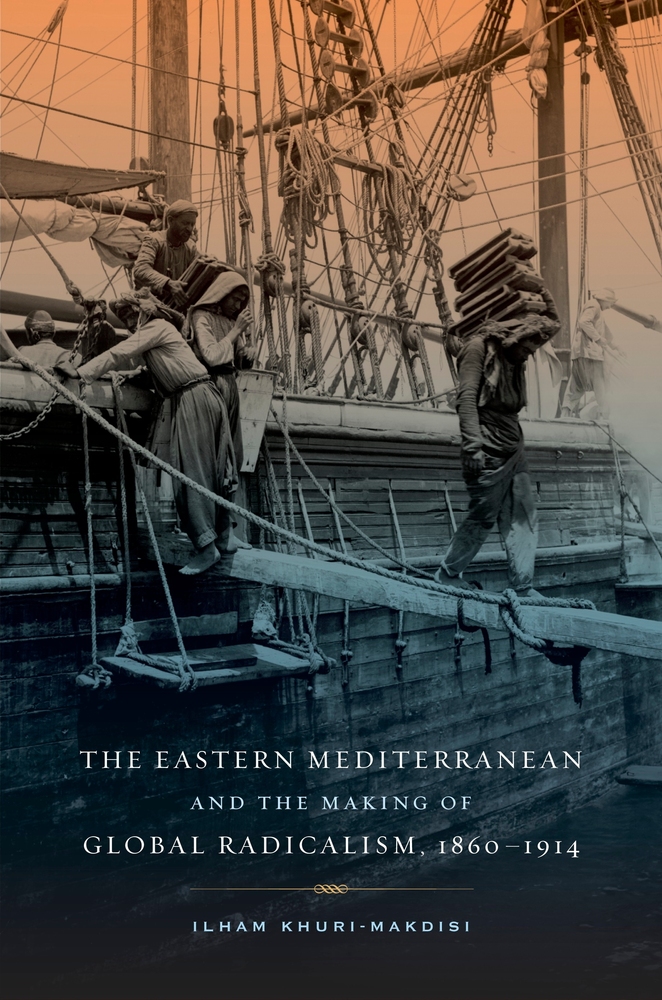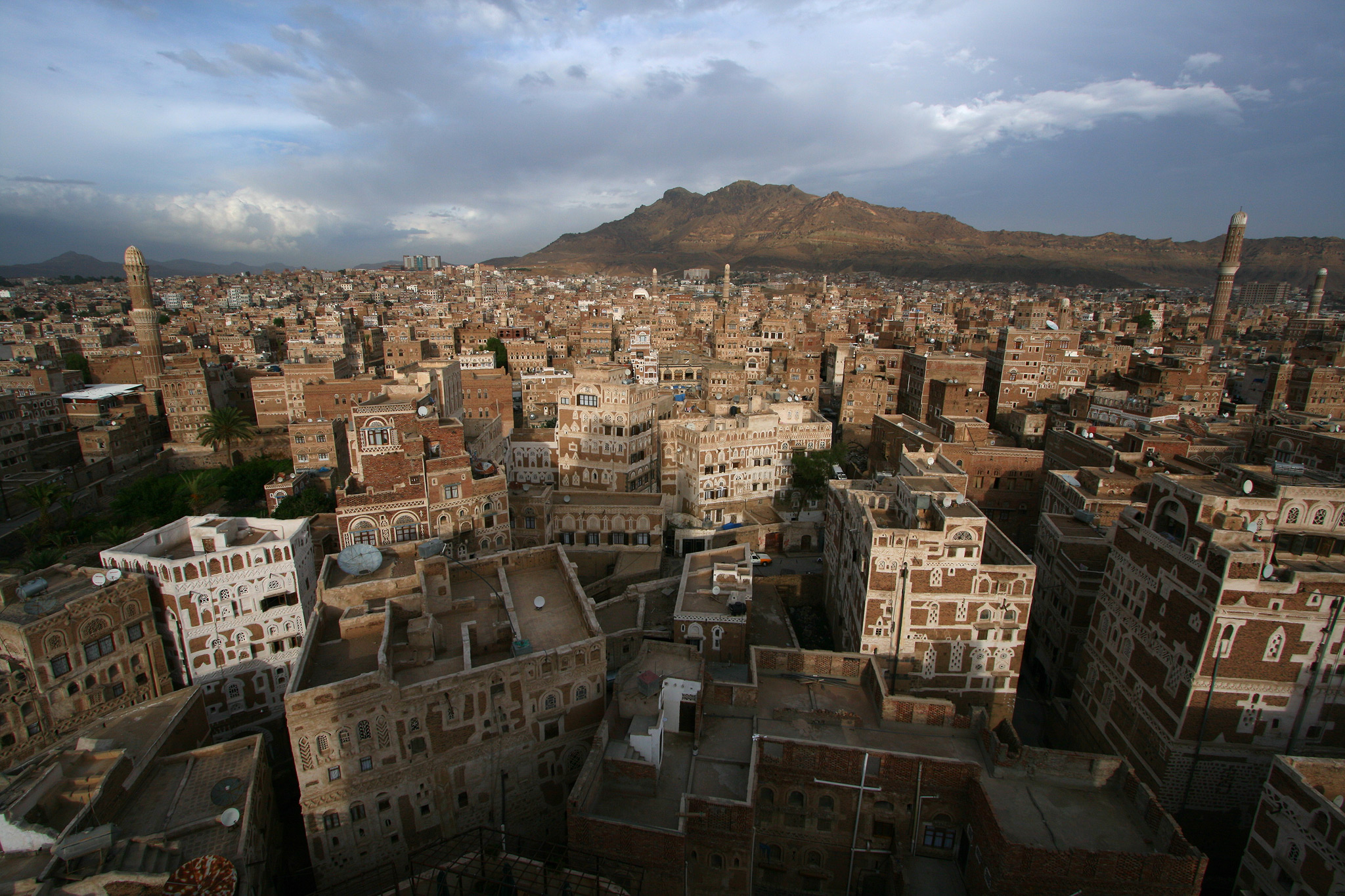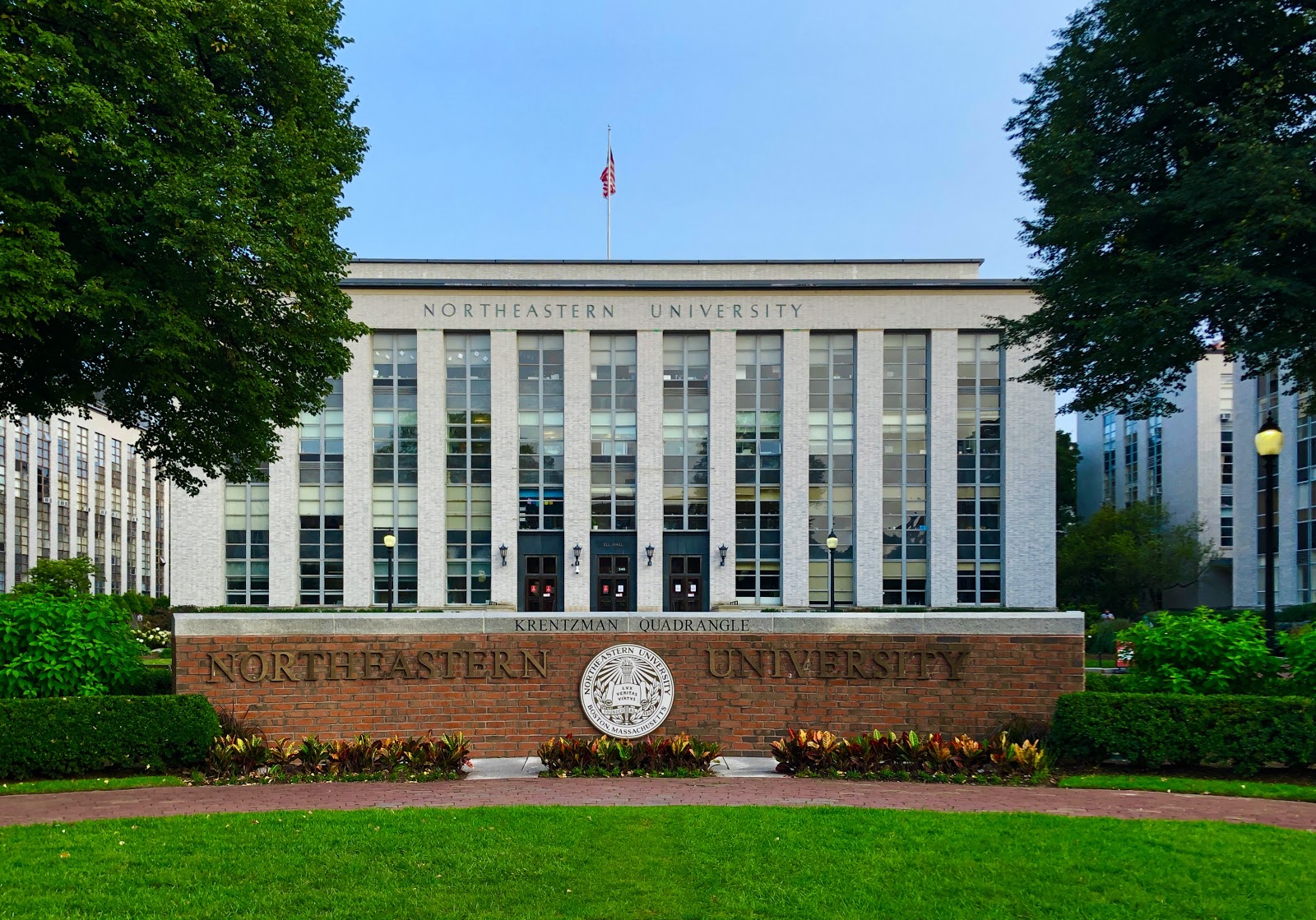 Northeastern University’s own Ilham Khuri Makdisi published the groundbreaking work The Eastern Mediterranean and the Making of Global Radicalism, 1860-1914 last April, less than a year before the international community rested its gaze on the rapid ideological revolution and protest movement that has swept the region in the last few months. Rereading Khuri-Makdisi’s work in light of the recent mobilization of thought and action in the Middle East and North Africa illuminates trends by which people are motivated to promote alternative social and global visions.
Northeastern University’s own Ilham Khuri Makdisi published the groundbreaking work The Eastern Mediterranean and the Making of Global Radicalism, 1860-1914 last April, less than a year before the international community rested its gaze on the rapid ideological revolution and protest movement that has swept the region in the last few months. Rereading Khuri-Makdisi’s work in light of the recent mobilization of thought and action in the Middle East and North Africa illuminates trends by which people are motivated to promote alternative social and global visions.
Analogies between this recent Arab revolution and the fall of the Soviet Bloc in 1989 or the Iranian Revolution in 1979 are prevalent in media, however often these analyses fall short of drawing fruitful conclusions. Khuri-Makdisi’s revival of the Nahda period (Arab Renaissance) affords the reader another point of comparison in which one can draw conclusions about the platforms though which global ideologies spread, and the circumstances that instigate profound ideological shifts.
Khuri-Makdisi’s work serves as an atlas of socialist and anarchistic movements in the Middle East from 1860-1914, with particular focus on how these “radical” movements were expressed and mobilized by intellectuals, workers, artists, writers and migrants in Beirut, Cairo, and Alexandria. The book demonstrates how radical groups developed through exchange with global networks of socialists and anarchists, situating these local movements in their global context and thus redefining the period of the Arab Nahda as a global production. The work offers a fresh perspective on late Ottoman social and intellectual history and challenges Eurocentric narratives about radical social movements.[i] It departs from the narrative in which Middle Eastern ‘radical’ thought is principally Islamic in nature, uncovering a more nuanced ideological production and context for the region, rehabilitating an era that has been largely under-examined in the scholarship on the period.
Parallels between the cultivation of thought in the late nineteenth and early twentieth centuries and the present trends are abundant. Khuri-Makdisi’s work showcases intellectuals who rallied to reconceptualize world order through a vision of social justice, largely within socialist or anarchistic frameworks. Calls for political representation, constitutional government, freedom of speech and freedom from the colonialist yoke resounded; echoing today’s revolutionary goals. Non-Western actors found the confidence to reconstruct their social worlds by synthesizing and adapting swiftly globalizing ideologies.[ii]
The book’s period of focus was marked largely by a swell in population and urbanization, compounded by a wave in which global communication and information networks swelled with the development of global economies, the construction of the Suez Canal, and the presence of foreign imperial powers. Ideas were spread through the cultivation of new media networks: pamphlets, articles, telegraphs, postal services, literary salons, and the theater; all nascent spaces for the exchange of ideologies.[iii] These practices illuminate the importance of the public sphere in the spread of ideas, also aiding today’s activists in their work through the use of burgeoning social media platforms, the Internet, and the unprecedented dissemination of information in the WikiLeaks release.
Khuri-Makdisi cites this period of globalization beginning in the late nineteenth century as a point where an urban middle class grew in congruence with the spread of education in urban centers. This increase in education acted as one of the stimuli for the blossoming of radical thought in the period under study, as raised expectations for employment were unmatched by labor market realities.[iv] Higher expectations for employment due to an increase in education among Arab youth incited recent radicalization, as told by the story of Mohamad Bouazizi, the Tunisian man who turned to self-immolation to express his frustration as an unemployed university graduate last December. People then and now became increasingly aware of the inequity of the international economic system, working toward a movement of mass politics and calling for political representation, while realizing the state cannot protect its people from the injustice of international capitalism.[v] Khuri-Makdisi cites the spread of migrant labor as a cathartic mechanism for this growth in radicalism in the late-nineteenth century, but noted in a lecture at Northeastern University in March 2011 that no such release exists as readily in today’s world order.
The narrative ends with the beginning of World War I which comprehensively reworked global social order, especially in the Eastern Mediterranean where the fall of the Ottoman Empire marked the formation of new Arab states, more extensive controls on mobility, and the birth of “Arab Nationalism,” which became one of the dominant ideologies in the region in the early post World War II period. Due to recent popular shifts in the region’s political and ideological focuses, the possibility exists that the early twenty-first century may give way to a similar period of massive restructuring in the regional order.
As a new vision of social order blossoms, due in part to the same factors that allowed for a similar frothing of new and radical ideologies in the late nineteenth century, one can hope that future historians will be as thorough as Khuri-Makdisi in charting this exciting new ideological revival.
[i] Ilham Khuri-Makdisi, “The Eastern Mediterranean and the Making of Global Radicalism, 1860-1914,” University of California Press: Berkley, 2010: 8-9.
[ii] Khuri-Makdisi, 3
[iii] Khuri-Makdisi, 7
[iv] Khuri-Makdisi, 5
[v] Khuri-Makdisi, 6



